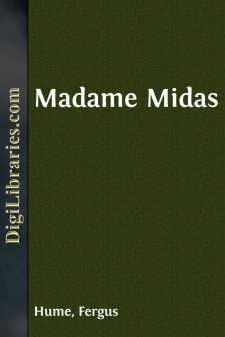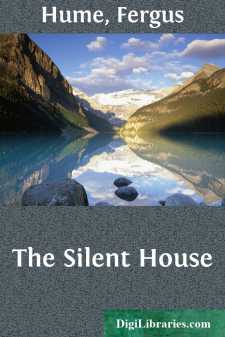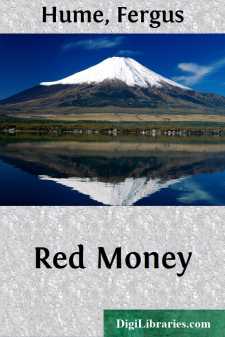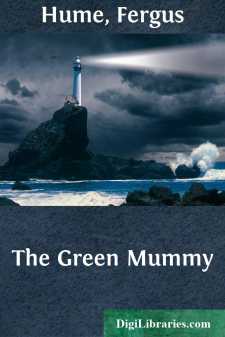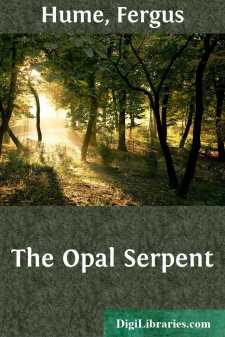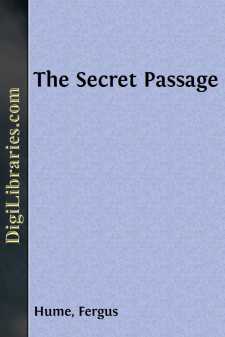Categories
- Antiques & Collectibles 13
- Architecture 36
- Art 48
- Bibles 22
- Biography & Autobiography 813
- Body, Mind & Spirit 142
- Business & Economics 28
- Children's Books 15
- Children's Fiction 12
- Computers 4
- Cooking 94
- Crafts & Hobbies 4
- Drama 346
- Education 46
- Family & Relationships 57
- Fiction 11828
- Games 19
- Gardening 17
- Health & Fitness 34
- History 1377
- House & Home 1
- Humor 147
- Juvenile Fiction 1873
- Juvenile Nonfiction 202
- Language Arts & Disciplines 88
- Law 16
- Literary Collections 686
- Literary Criticism 179
- Mathematics 13
- Medical 41
- Music 40
- Nature 179
- Non-Classifiable 1768
- Performing Arts 7
- Periodicals 1453
- Philosophy 64
- Photography 2
- Poetry 896
- Political Science 203
- Psychology 42
- Reference 154
- Religion 513
- Science 126
- Self-Help 84
- Social Science 81
- Sports & Recreation 34
- Study Aids 3
- Technology & Engineering 59
- Transportation 23
- Travel 463
- True Crime 29
Madame Midas
by: Fergus Hume
Description:
Excerpt
A wild bleak-looking coast, with huge water-worn promontories jutting out into the sea, daring the tempestuous fury of the waves, which dashed furiously in sheets of seething foam against the iron rocks. Two of these headlands ran out for a considerable distance, and at the base of each, ragged cruel-looking rocks stretched still further out into the ocean until they entirely disappeared beneath the heaving waste of waters, and only the sudden line of white foam every now and then streaking the dark green waves betrayed their treacherous presence to the idle eye. Between these two headlands there was about half a mile of yellow sandy beach on which the waves rolled with a dull roar, fringing the wet sands with many coloured wreaths of sea-weed and delicate shells. At the back the cliffs rose in a kind of semi-circle, black and precipitous, to the height of about a hundred feet, and flocks of white seagulls who had their nests therein were constantly circling round, or flying seaward with steadily expanded wings and discordant cries. At the top of these inhospitable-looking cliffs a line of pale green betrayed the presence of vegetation, and from thence it spread inland into vast- rolling pastures ending far away at the outskirts of the bush, above which could be seen giant mountains with snow-covered ranges. Over all this strange contrast of savage arid coast and peaceful upland there was a glaring red sky—not the delicate evanescent pink of an ordinary sunset—but a fierce angry crimson which turned the wet sands and dark expanse of ocean into the colour of blood. Far away westward, where the sun—a molten ball of fire—was sinking behind the snow-clad peaks, frowned long lines of gloomy clouds—like prison bars through which the sinking orb glowed fiercely. Rising from the east to the zenith of the sky was a huge black cloud bearing a curious resemblance to a gigantic hand, the long lean fingers of which were stretched threateningly out as if to grasp the land and drag it back into the lurid sea of blood; altogether a cruel, weird-looking scene, fantastic, unreal, and bizarre as one of Dore's marvellous conceptions. Suddenly on the red waters there appeared a black speck, rising and falling with the restless waves, and ever drawing nearer and nearer to the gloomy cliffs and sandy beach. When within a quarter of a mile of the shore, the speck resolved itself into a boat, a mere shallop, painted a dingy white, and much battered by the waves as it tossed lightly on the crimson waters. It had one mast and a small sail all torn and patched, which by some miracle held together, and swelling out to the wind drew the boat nearer to the land. In this frail craft were two men, one of whom was kneeling in the prow of the boat shading his eyes from the sunlight with his hands and gazing eagerly at the cliffs, while the other sat in the centre with bowed head, in an attitude of sullen resignation, holding the straining sail by a stout rope twisted round his arm. Neither of them spoke a word till within a short distance of the beach, when the man at the look-out arose, tall and gaunt, and stretched out his hands to the inhospitable-looking coast with a harsh, exulting laugh.
'At last,' he cried, in a hoarse, strained voice, and in a foreign tongue; 'freedom at last.'
The other man made no comment on this outburst of his companion, but kept his eyes steadfastly on the bottom of the boat, where lay a small barrel and a bag of mouldy biscuits, the remnants of their provisions on the voyage.
The man who had spoken evidently did not expect an answer from his companion, for he did not even turn his head to look at him, but stood with folded arms gazing eagerly ahead, until, with a sudden rush, the boat drove up high and dry on the shore, sending him head- over-heels into the wet sand. He struggled to his feet quickly, and, running up the beach a little way, turned to see how his companion had fared. The other had fallen into the sea, but had picked himself up, and was busily engaged in wringing the water from his coarse clothing. There was a smooth water-worn boulder on the beach, and, seeing this, the man who had spoken went up to it and sat down thereon, while his companion, evidently of a more practical turn of mind, collected the stale biscuits which had fallen out of the bag, then, taking the barrel carefully on his shoulder, walked up to where the other was sitting, and threw both biscuits and barrel at his feet.
He then flung himself wearily on the sand, and picking up a biscuit began to munch it steadily. The other drew a tin pannikin from the bosom of his shirt, and nodded his head towards the barrel, upon which the eater laid down his biscuit, and, taking up the barrel, drew the bung, and let a few drops of water trickle into the tin dish. The man on the boulder drank every drop, then threw the pannikin down on the sand, while his companion, who had exhausted the contents of the barrel, looked wolfishly at him. The other, however, did not take the slightest notice of his friend's lowering looks, but began to eat a biscuit and look around him. There was a strong contrast between these two waifs of the sea which the ocean had just thrown up on the desolate coast. The man on the boulder was a tall, slightly-built young fellow, apparently about thirty years of age, with leonine masses of reddish-coloured hair, and a short, stubbly beard of the same tint. His face, pale and attenuated by famine, looked sharp and clever; and his eyes, forming a strong contrast to his hair, were quite black, with thin, delicately-drawn eyebrows above them. They scintillated with a peculiar light which, though not offensive, yet gave anyone looking at him an uncomfortable feeling of insecurity. The young man's hands, though hardened and discoloured, were yet finely formed, while even the coarse, heavy boots he wore could not disguise the delicacy of his feet. He was dressed in a rough blue suit of clothes, all torn and much stained by sea water, and his head was covered with a red cap of wool-work which rested lightly on his tangled masses of hair. After a time he tossed aside the biscuit he was eating, and looked down at his companion with a cynical smile....


